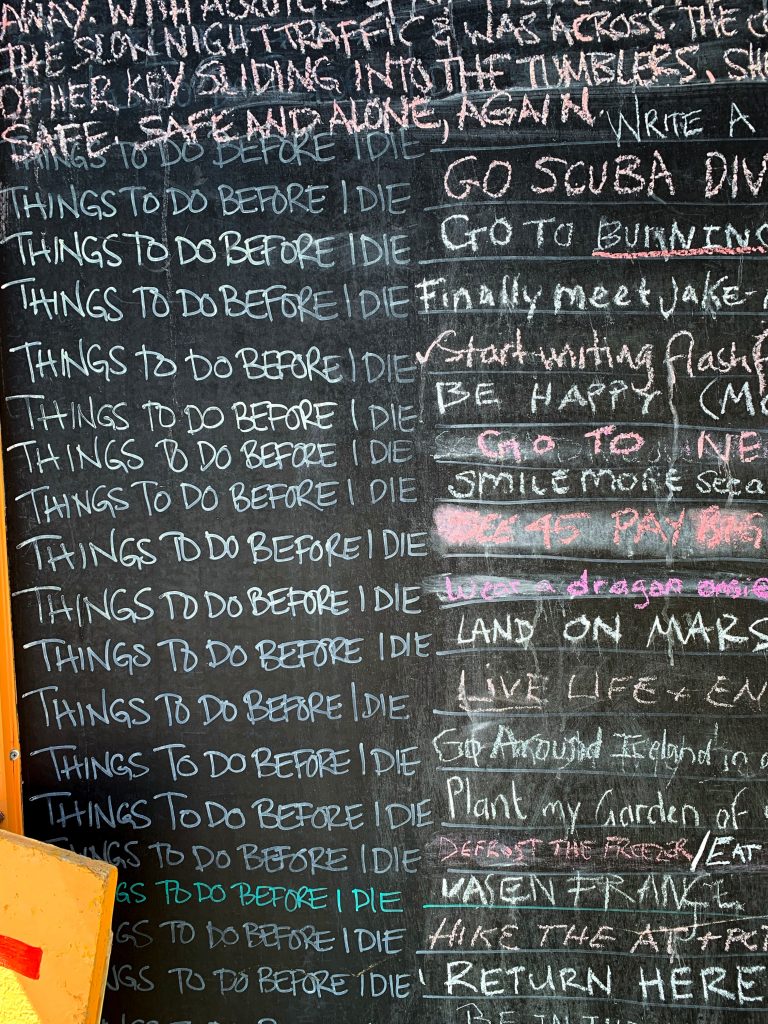
Talking to a new client this week I realised that she has clearly spent time thinking about her career change. She has all sorts of ideas about what she really wants to do. But she’s procrastinating.
We uncovered that she had a list of possible roles that interest her and that she’d like to explore.
There’s even a course that interests her – although she’s twice skipped getting started.
She’s quite clear on what she doesn’t want, 1) to stay working for her company, and 2) a role where she spends the majority of her time writing.
A company where personal growth and learning is encouraged, and important, is much more appealing. She’s clearly curious and keen to learn and at the moment that is being ignored. So a company where learning is one of the values seems like a good fit.
She’d also like to earn more money and feels quite undervalued in what she does.
So why hasn’t she yet made the next step – when she pretty much knows what she wants?
Mainly fear.
What’s stopping her from finding and applying for new roles? Perhaps a sense that her current role is so specific that other companies won’t be able to see her other skills and attributes.
Maybe she sees the specifications and tells herself she’s not qualified/experienced/able enough. Although – recruitment experts suggest applying for a role if you can meet only 70% of the requirements. If you’re a good fit you can learn the rest.
Why hasn’t she gone ahead with the course? She admitted that she didn’t feel creative enough. So she’s put a barrier in her way, perhaps feeling inadequate or worried she won’t enjoy the course.
Luckily we came up with a couple of solutions to this – speaking to acquaintances who work in the industry and getting their take on her fears around creativity. And speaking to the course provider and learning a bit more about the reality of what the course entails.
This is quite common with clients. Although they feel stuck at work and frustrated and despairing – in fact they have a pretty clear idea of alternatives that would make them happier. But they are procrastinating, based on fear, which is totally understandable. Change and putting yourself out there can be scary – you can’t predict the outcome.
You might be setting yourself up for rejection, feeling uncomfortable, failure.
But the thing is – staying stuck is not a good feeling. Feelings of frustration. Getting angry at yourself for letting yourself stay in the current situation. That negative voice in our heads can be so harsh.
The thing about going through rejection, feeling uncomfortable, potential failure – is that you always come out the other side, and you always learn something. Even if you learn that you should trust your instincts more. That no, that company doesn’t hold the same values as you. Or that yes, you should have swotted up more on the company’s vision. Yes, that role definitely isn’t for you.
With all this you’re moving forward, learning, gaining momentum, getting closer to what you want. You’re narrowing it down, practising for when it really matters.
Only you can change your situation, really. You have to find a way to take action and stop procrastinating. Whether it’s getting a friend to be your ally and spur you on, speaking to a coach, getting help from a mentor. Find a way to feel supported – and do what you have to do. You already know what you have to do – you just have to get past yourself and start, step by step.
I offer career change coaching. You can book a session here: calendly.com/joannaopokulifecoaching. Or get in touch if you’d like to learn more. Find me on LinkedIn or email at joaopoku@gmail.com.
Photo by Donald Giannatti on Unsplash




